AFRICAN YOUTH UNION 4TH ANNUAL SUMMIT PAPER
THEME: REGIONAL INTEGERATION OF AFRICA AND PERSPECTIVE OF THE YOUTH
DATE: 16 & 17 OF OCTOBER 2014
SUMMIT VENUE: IMPERIAL RESORT BEACH HOTEL
HOST COUNTRY: UGANDA
CONTACT: SUMMIT@AYU.ORG.ZA
AYU 4TH ANNUAL SUMMIT 16-17 2014, UGANDA
Theme: REGIONAL INTEGERATION OF AFRICA AND PERSPECTIVE OF THE YOUTH
- A. BACKGROUND
According to the African Union, about 65% of the total population of Africa are below the age of 35 years, and over 35% are between the ages of 15 and 35 years – making Africa the most youthful continent. By 2020, it is projected that out of 4 people. About 10 million young African youth arrive each year on the labor market.
The African Union envisions and strives for a political agenda and an Africa integrated on economic social, cultural and political levels: A prosperous Africa at peace with itself and its partners.
Clearly an emergent and integrated Africa can be fully realized only if its demographic advantage – “a large population of youth” is mobilized and equipped to help drive Africa’s integration, peace and development agenda. This vision emanates from the belief and conviction that a strong and accountable leadership and successful integration needs to be anchored on participation of the key segment of the population of which the Youth are an essential pillar.
Against the foregoing and in light of; the great potential, dynamism, resourcefulness, resiliency, and aspiration of African youth, the continent continues to face daunting challenges of maximizing benefits from this critical social capital by, for example, adequately investing in its growth and enrichment.
The African population is estimated to be more than 1 billion people of whom 60% are youth. The greater proportion of youth does not have the opportunity to fully develop its potential and contribute effectively to the realization of the declared Vision and the Mission of Africa’s leaders. Consequently the majority of African youth continue to face; unemployment, underemployment, lack of skills, of relevant education, access to health-related information and services including those related to diagnosis, treatment, and care of those living with HIV and above all prevention of new HIV infections.
Along with other groups such as women and the disabled, the youth bear the brunt of internal and external crisis, be it those related to financial, food and energy crises or others. In addition, many disadvantaged youth are unwittingly conscripted into armed struggles, used to settle political scores and are exposed to various negative media that erodes their positive heritage- leading them to delinquency, drug abuse, and other risky behavior. Furthermore and as is well known, most youth that migrate to foreign countries or even within the continent; in search of greener pastures also face exploitation mistreatments; and worse.
African Youth Charter defines a youth as person between the ages of 15 and 35 years.
- B. Youth and Regional Integration of Africa
“It is not enough to speak, write and disseminate a content and planned strategy to improve the development of the African continent and its people. It is not enough to involve the youth in the process. It is important and non-negotiable to ensure meaningful participation of all segments of African citizens in the implementation of the agenda 2063”. Dr. Nkosazana Zuma, AUC Chairperson
- C. Uganda and Regional Integration of Africa
Youth in Uganda are the youngest population in the world, with 77% of its population being under 30 years of age.
Uganda as a Member State of the AU and committed to the African Youth Charter is working diligently to fulfill its national and regional responsibilities in achieving the regional integration of Africa.
Uganda under President Museveni has been a driving force in the past years in championing regional integration of Africa and is still key in leading Africa to its desired destination.
The debate of regional integration of Africa is mainly held at top level while; local people, and especially the youth are hardly involved in this contentious issue which will have a significant effect on their lives.
- D. African Youth Union (AYU) and regional integration of Africa
AYU as the only independent functional regional youth body has among its objectives to unify all youth across the continent.
We see integration as one of the major missing factors to fundamental development of Africa.
The issue of regional integration of Africa needs to be given more attention than it is getting, and it has to be representative with all age brackets being given equal importance.
Uganda’s population being the most youthful one in Africa deserves correspondingly more attention.
AYU believes that the ideals of youth are crucial in the realization of Africa’s integration.
E. Summit Objectives
i. To facilitate a process that strengthens effective youth participation in the decision making on regional integration of Africa.
ii. To facilitate effective partnerships with youth and youth organizations in the implementation of agenda 2063 and regional integration of Africa.
iii. To create an inclusive platform with youth that enables them to review the progress of regional integration, share ideas, experiences and innovative approaches for effectively contributing to regional integration and agenda 2063 and its implementation.
iv. To establish a follow- up mechanism that supports young people as partners in the process of regional integration and implementation of agenda 2063.
F. African Youth Union (AYU) process
AYU will take measures to ensure that the forthcoming AYU summit is not just a one- off event on regional integration and youth. We firmly believe that, in order, to make an impact in partnership with youth we need to invest in a youth-centered preparatory process leading to the summit and most importantly, to a commitment to a follow -up phase in partnership with young people in the process of regional integration and agenda 2063 implementation.
The following is a brief description of the proposed three phases:
- 1. Youth-Centered Preparatory Processes
The preparatory campaigns will be carried out in at least 10 African countries.
It is envisaged that this process will support youth led processes in the regional integration of Africa that enable their effective participation in contributing to key sessions that will shape the road map to integration and realization of agenda 2063. It will be vital to work closely with governments, the AU, youth organizations, and other stakeholders that are supporting young women and young men to effectively engage in discussions related to the above. The preparatory process will cover various regions and work with ongoing regional processes that are shaping Africa’s regional integration.
We ask governments and key actors to join us in the preparatory process.
The main goal here is to support young people to be able partners in the regional integration of Africa so that when they participate in the summit in 2014 they are able to share their ideas, roles and contributions.
2. African Youth Union 4th Annual Summit 2014
The summit itself will allow for joint reflection, consolidation of experiences from the preparatory processes and also act as a spring -board for strengthening the partnership with youth in the regional integration of Africa and agenda 2063.
3. Youth-Centered Follow -Up Process
Past lessons clearly show that lack of investment in follow -up can derail the work, enthusiasm and energy to reach the next significant milepost. We strongly feel the need for the commitment of all stakeholders in the follow-up phase so that youth can be supported to become effective partners in the realization of regional integration of Africa and agenda 2063.
G. African Youth Union Commitment
AYU is committed to undertaking the responsibility to facilitate and lead the processes prior to and after 2014, in organizing the summit in Uganda and then setting up a follow-up plan and mechanism.
AYU is willing to take the responsibility of organizing the groundwork for the regional process with regional ownership, which will enable young people to contribute to the decision making process for Africa’s regional integration.
H. Partnerships
African Youth Union would like to invite all governments in Africa, regional bodies, youth organizations and all concerned parties to this pioneering process.
We seek advice from the government of Uganda and South Africa, the AU and Youth Organizations and other stakeholders to make this a truly youth centered experience.
- I. Summit Participants
The summit shall be attended by at least 300 young people across Africa and 50 from the diaspora. The total number of participants including guests is expected to be 400.
- J. Guest of Honor
The summit will be officially opened by H.E. President Y.K. Museveni, the President of the Republic of Uganda.
Other guests will include; government officials from different African governments, AU officials, diplomats, senior researchers, academicians and the Advisory Council/Board of Directors of the African Youth Union.
- K. Summit Dates and Venue
The summit shall be held on 16 and 17 of October 2014 but will be preceded by a meeting of AYU national coordinators and the International Executive Council (IEC) on 14-15, October 2014.
The summit will also be preceded by preparatory activities in different African countries that will include: Ghana, Cameroon, Burundi, Kenya, Tanzania, Zambia, Malawi, Nigeria, South Africa and Uganda.
The summit shall be held at the Imperial Resort Beach Hotel, Entebbe Uganda.
- L. Sponsorship
The sponsors of the 04th annual summit shall be displayed on our promotional summit material and publications, website and special mentions during the summit. The sponsors are welcome to provide help in the following areas:
- Sponsoring delegates who cannot afford to attend (buying them air tickets and accommodation)
- Hosting fundraising dinners and events
- Overall event logistics
To those willing to join us in supporting our activities and sponsoring the summit:, Please contact us at: summit@ayu.org.za. You are also welcome to donate towards our organization programs.
- M. Why the 4th Annual Summit a must do?
I. The 4th annual summit is going to be the first ever meeting to bring together youth across Africa and the diaspora to discuss and put in place an action plan or realizing regional integration.
II. The meeting is not a “talk show” but an extraordinary meeting that is going to adopt a historic roadmap to realizing agenda 2063 and the integration of Africa by the youth of Africa.
III. The 4th annual summit is not a once off event, it has pre and post action oriented activities with practical and achievable results.
IV. The 4th annual summit is the first summit that shall be held after the Pretoria resolution of promoting and engaging into action oriented Pan-Africanism.
V. The summit will be preceded with participatory events and activities across Africa which will include;
ü A regional campaign in at least 12 African countries, which will include but not limited to; Ghana, Cameroon, Nigeria, Burundi, Rwanda, Malawi, Kenya, Tanzania, Malawi, Zambia, South Africa and Uganda.
ü Outreach program in high school, high institutions of learning and communities.
ü Consultative meetings
ü Seminars and workshops
ü Multi-stakeholders’ dialogue
ü Participatory brainstorming sessions
- N. African Youth Union (AYU) Mandate
The AYU is a Pan-African Youth regional organization; representing millions of youth across the continent. It has a presence in at least 30 African countries. So far, AYU is the largest youth organization on the continent and has grown tremendously in a short period of time.
It has previously hosted successful events (summits. Seminars, workshops and awareness campaigns) that have influenced policies in many African countries.
AYU is run by young people aged 18-35, but has an advisory council that is composed of senior and experienced distinguished professionals.
AYU has members across the continent. It focuses on lobbying African governments to implement the African Youth Charter, promoting entrepreneurship among African youth, mobilizing youth to be active citizens and inspiring them to restore patriotism and Pan-Africanism, defending and protecting the rights of young people especially youth involved in rights and political activism, and raising awareness about the work and roles of Pan-African institutions.
Vision
To create a continent that caters for the youth, respect all classes of people and change the attitude of young people in Africa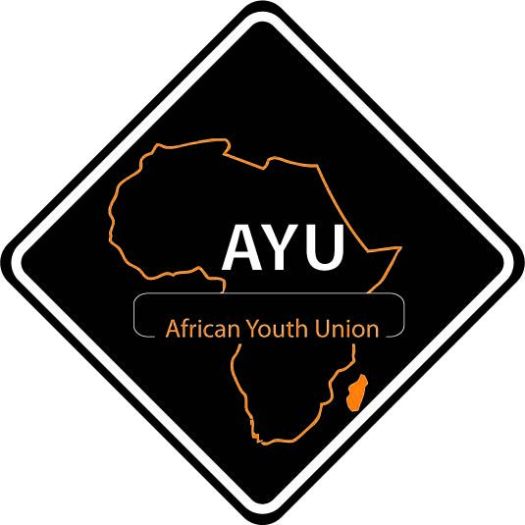
Mission
To transform the image of Africa through young people
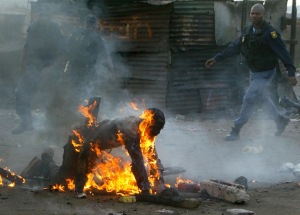 A foreigner burnt by xenophobic South Africans
A foreigner burnt by xenophobic South Africans



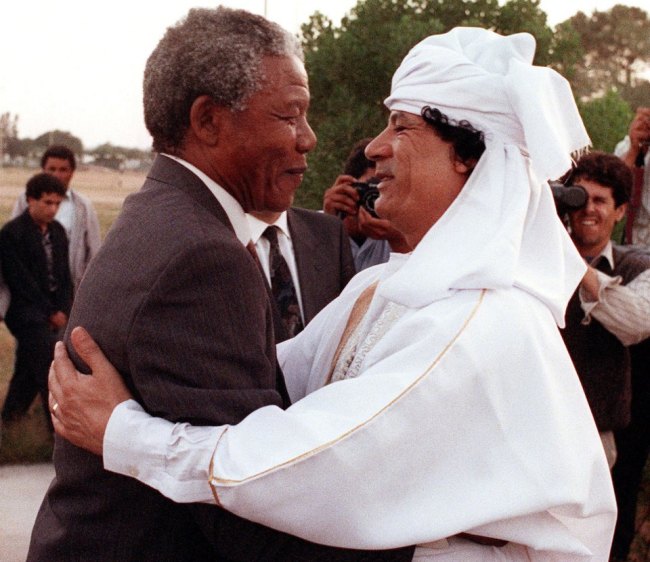
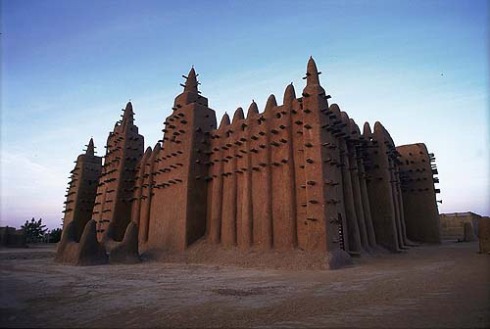


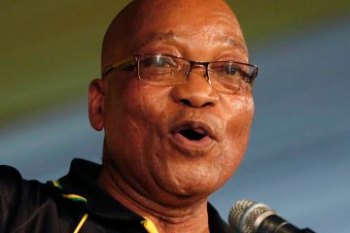 South Africa’s President Jacob Zuma celebrates his re-election as Party President at the National Conference of the ruling African National Congress (ANC) in Bloemfontein on Dec. 18, 2012
South Africa’s President Jacob Zuma celebrates his re-election as Party President at the National Conference of the ruling African National Congress (ANC) in Bloemfontein on Dec. 18, 2012